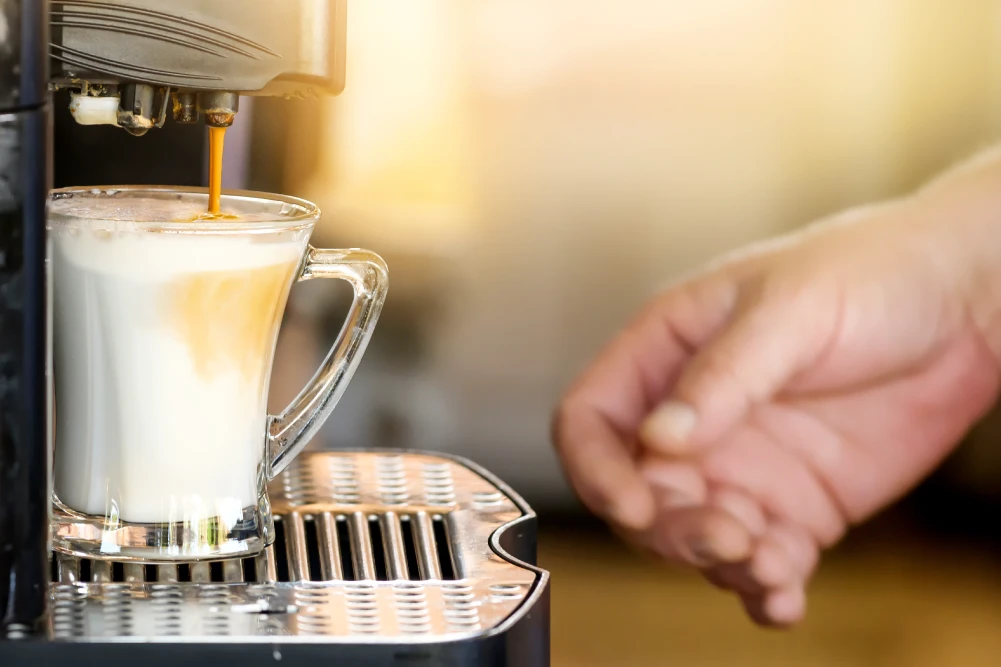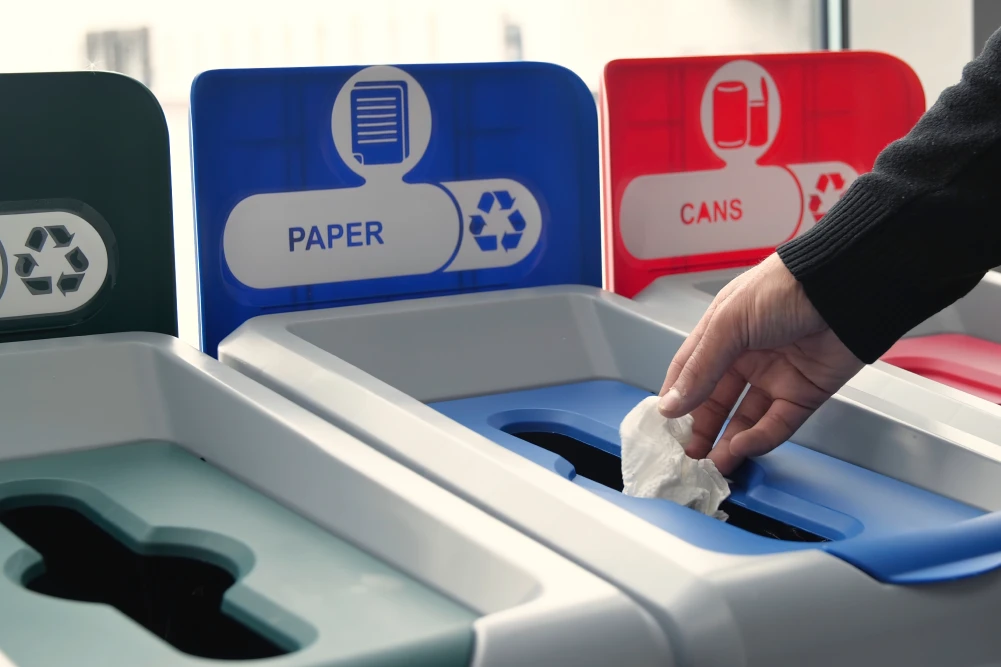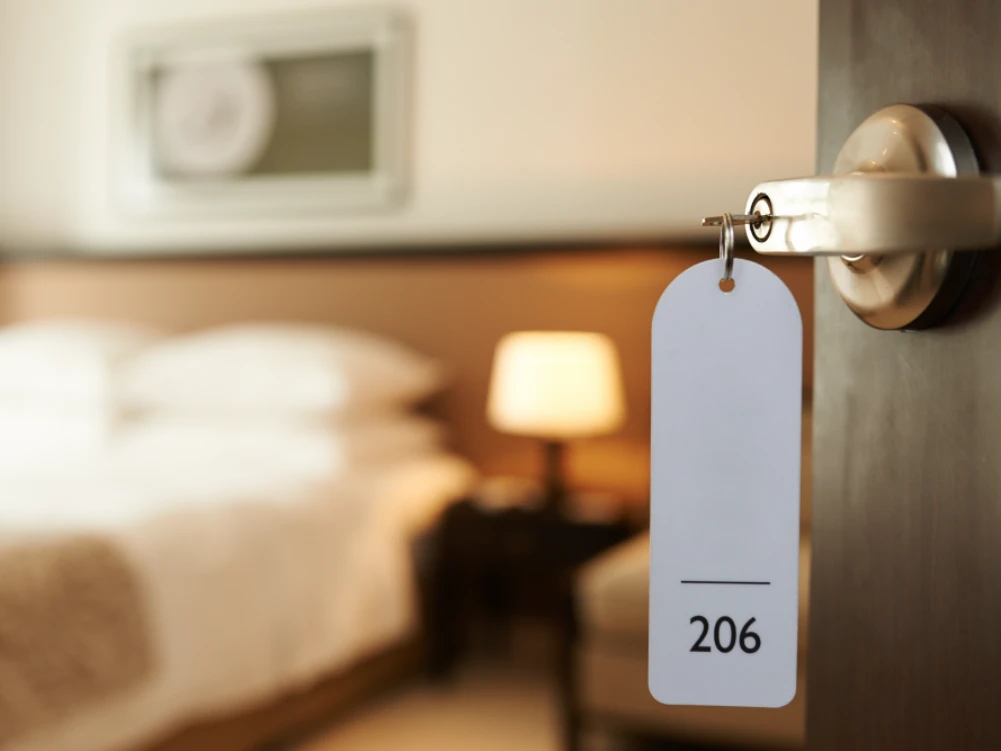- Home
- Food Technology and Vending Guides
- Hotel Industry Vending & Food Tech Guide
Hotel Industry Vending & Food Tech Guide
Catering is one of the most important aspects of a hotel’s service offering. Whether it be their breakfast, lunch or dinner time spreads or room service, visitors, guests and staff need a range of high-quality hot and cold food options on-demand.
While challenging at a glance, hotel chains that leverage technology to streamline the process of delivering desirable catering options gain the advantage over those that don’t.
In this guide, we’ll discuss all the business, consumer and site considerations — as well as any sustainability and health and safety factors — catering managers must bear in mind when tailoring a technology-based solution for hotels.
Hotel and Leisure consumer considerations
Before diving into understanding the needs of the consumer base, it’s crucial to know who they are.
Hotel guests are likely there for one of two reasons — they’re either a visiting the area for business or they’re a holidaymaker using the facilities for a leisure trip. Because guests are staying for different reasons, they’ll have different needs that must be met by any bespoke catering solution.
Business consumer considerations
Business trips make up 40% of all hotel room bookings — so it’s a market that’s worth paying attention to. Different factors need to be considered when catering for business guests.
It’s crucial that vendors, catering managers and the hotel chains themselves consider that:
Business travellers have less free time — Whether it be for attending seminars, meetings or conferences, business travellers must usually adhere to a strict itinerary which means they might miss scheduled hotel mealtimes. Modern catering solutions — like convenient self-service micromarkets — can help speed up the process of procuring a range of nutritious options so business guests can get quality food day or night.
A space to work — During breaks from meetings and conferences, business guests may want meals or snacks while they catch up on work. Having a self-service dining space that offers a range of hot and cold food options and doubles up as a workspace mean that business teams can work in comfort and procure nourishment with minimal effort.
Need for quick access to a variety of foods — Just because a business guest is busy doesn’t mean they want to be unhealthy. Business guests need to be able to access a range of healthy options — and food that caters to a range of dietary preferences — should they want them.


Leisure consumer considerations
Whether it’s a family retreat or a needed weekend break, the most common reason for a hotel booking is a holiday. Arguably, the most important aspect of a hotel stay is the catering – although their needs may differ from business travellers.
For leisure guests, it’s important for hotels and catering managers to consider:
Convenience — Part of a relaxing holiday experience is being able to indulge in food and drink whenever you feel like it. To make a stay as relaxing as possible for holidaymakers, getting food needs to be quick and easy. Catering managers and vendors need to consider ways speed up the process and making quality food accessible round-the-clock.
Variety of foods on offer — Holidaymakers expect the finest treatment; that’s what they pay for. These means catering for a variety of dietary preferences — like creating vegan alternatives and allergen free meals — as well as hot and cold options that are tasty, high-quality and nutritious.
Additional services — As well as scheduled mealtimes, catering managers must also consider how to deliver around-the-clock services. As more expensive hotels overcome this by offering room service, cheaper hotels will have to find a more cost-effective workaround — like a self-service snack/meal bar in the form of a micro market.
Site considerations
When establishing the best arrangement for new catering technologies, it’s important to consider a few things like:
Location — Catering managers must choose the ideal locations for their self-service catering units to be installed. Holidaymakers don’t want to trek across a complex for long distances to collect food — they want is as accessible as possible, so choosing central or high-traffic areas to minimise travel time goes a long way for guests.
Availability — In addition to long walks, waiting in queues for food is not desirable for holidaymakers either. Businesses might have to consider scaling their self-service solutions to match the size of the site. This might mean introducing multiple smaller self-service snack/meal hubs in different locations throughout a larger complex. Because they fully automated — and don’t need to be manned — a range of quality goods are ready for staff 24 hours a day.
Consumer comfort — Depending on the location of the hotel, the right infrastructure would need to be put in place to ensure that those using the facilities can do so in comfort. Catering managers need to consider temperature control in hot or cold climates and whether there’s adequate shade in outdoor areas during the holiday season.

Health and Safety considerations
The health and wellbeing of consumers, staff and visitors is paramount for any hotel chain — failure to comply to regulations can put owners at serious risk of legal action.
Some of the health and safety considerations hotels need to consider are:
Product rotation — Like every food product, those stored in catering technologies — like micromarkets and food hubs — have a shelf life. Perishable and high-risk food and drink items need to be regularly restocked and replenished to avoid out-of-date products reaching consumers.
Adequate signage — With self-service meal and snack bars, consumers can grab and go. However, it means doing everything themselves which exposes users to risks that they need to know about. Catering managers must consider any hazards — like hot water spillages from coffee machines or trip hazards — and how to inform consumers of potential risks and advise best practice.
Machine positioning – Catering technologies need to be positioned and installed safely. Machines can’t block fire exits and need to be placed on even surfaces to prevent it tipping over. Also, electrical components — like wiring, heating and cooling units — need to be insulated and ventilated to prevent dangerous electrical hazards.
Legal risks — Catering managers must ensure that all documents are in order when adding self-catering technologies to their service offering. It’s crucial to make sure that insurance documents, lease papers and licenses are up to date to avoid common legal pitfalls.
Sustainability considerations
Sustainability has fast become one of the most important factors to consider when incorporating self-catering solutions into a hotel complex.
This mean hotel chains must look at ways to reduce their carbon footprints and minimise waste during the implementation and maintenance of any self-service snack or meal spaces.

Some of the sustainability considerations hotels may need to consider are:
Waste — Food waste and non-recyclable packaging and cutlery are a leading culprit of environmental damage as they stay in landfill and don’t degrade. Catering managers should look at investing in self-service vendors that focus on reusable or biodegradable packaging and technologies that lower carbon emissions.
Energy consumption — It’s important that modern machines are energy efficient. Catering managers and hotel chains should consider self-service machines that can enter low-power modes during periods of reduced demand and have a high efficiency rating that saves money and reduces emissions.
Hotel and hospitality catering regulations
When searching for a self-service catering solution, the technologies need to facilitate the safe handling, preparation and serving of food in compliance with guidance and regulations from governing bodies.
Not only do they have to abide their country’s food standards regulations — binding them rigorous food safety, handling and storage instructions — but they must follow strict guidelines when it comes to self-service catering too.
It’s also important to ensure that the following machine components are:
- Gas appliances
- Flues
- Pipework
- Self-service devices
This guarantees the safe and smooth operations of a self-service snack or meal bar with minimal day-to-day oversight.


-min.webp)

